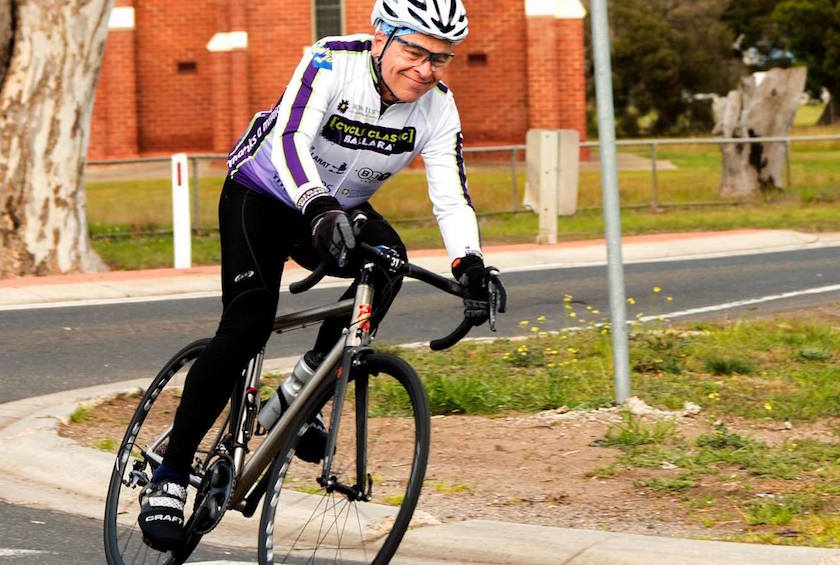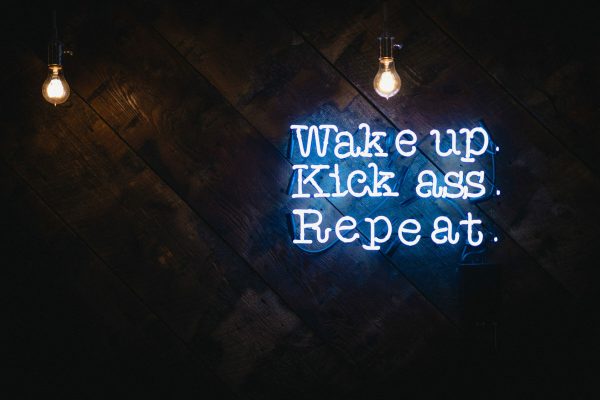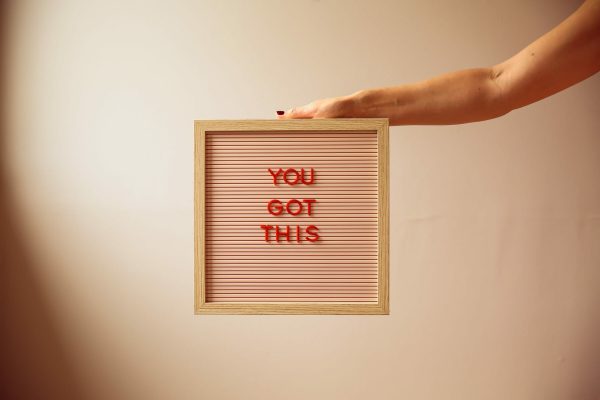I feel totally under-qualified to write this article about mental health.
As far as I know, I've never suffered from clinical depression. I've never had hormonal imbalances or chemical imbalances in my brain that impacted my mental health. I've never required medication for mental health conditions. I admire those who've dealt with these conditions, overcome them and learned to manage their condition, and even open up and share their learnings in this series of posts. Their courage and their preparedness to be vulnerable is inspirational.
Whilst I haven't suffered these conditions, I have been bullied, I have suffered setbacks, I have had bad things happen to me, I have lived through tough times and I have spent far too much time feeling sorry for myself in some of those times than I care to remember. I've struggled to see that proverbial light at the end of the tunnel and find ways to move forward.
That was then. This is now.
One of the simplest, and in my opinion most useful tools I've learned from Neuro-Linguistic Programming (NLP), is that of Reframing. The meaning of any event depends on how we frame it. When we change the frame we change the meaning and with it, our responses and behaviors to that event. An example is the ugly duckling, who turned out to be a beautiful swan. Comparing itself to other ducks made it feel inferior, but when comparing to swans, it saw it's own beauty for what it was.
Reframing a bad situation is a fantastic way to change your perspective and then change your response to move forward in a way that serves you best.
Now, Reframing is not about sitting in the dark tunnel, telling yourself that there is, indeed, light at the end of the tunnel and waiting for the light. It's about changing your behaviour and responses. If you just sit waiting in the tunnel, that light might turn out to be an oncoming freight train!
I'm a keen (some say obsessed) bike rider. It's my passion and joy. Riding seems to have so many parallels to life, that I often use experiences from my bike exploits to illustrate things. So here are two bike anecdotes that demonstrate how I used reframing to transform a response to a “bad” situation into one that served me much better.
The Fall
One morning on a hill ride, I was coming down the hill at a speed of about 60kmh, when suddenly the front wheel bounced and I was catapulted into the air, over my handlebars. I remember thinking “S**T, this is going to hurt!”. And, guess what? I was never more right about anything in my life! I hit the ground, rolled and then sat up, realised that I had broken my left collarbone. I ended up in hospital for a few days and my daily riding routine was over for a while, courtesy of a collarbone that was smashed into seven pieces, four fractured ribs, and a fractured pelvis!
Yes, I don’t do things by halves!
BTW, the most important thing for a cyclist in these situations, is “Is the bike OK?” Unfortunately, the bike was a write-off.
So, there I was in pain, unable to ride and without a bike for the duration of my recovery time. I could have focused on the pain (it was severe for a couple of weeks, believe me!) and felt sorry for myself, but what purpose would that have served? Instead, I reframed the situation with the following thoughts:
- I was now able to stay up late and watch live telecasts of the Tour de France, as I didn't need to get out of bed for the early morning ride.
- I had time to work with my insurance and organise a new bike. (Any bike rider will tell you, that after riding in perfect weather, the next best thing is researching and preparing for a new bike purchase!)
I was going to heal either way – even feeling sorry for myself. So why not reframe to something that served me much better and even provided some enjoyment? Sure enough, by doing this, the pain seemed much less of an issue due to the fact that I was not focused on it. I began to see the light at the end of the tunnel. And yes, I have a shiny new bike that is awesome!

Wait For Me!
My second story, whilst much less dramatic, is still another great illustration of reframing in action. Recently I rode with my buddies up a fairly steep, long mountain climb to the top where we would enjoy the views, a great cup of coffee and sharing stories. About half way up the climb, my legs were hurting, I was gasping for breath, and I was dropped by the other riders. I started thinking that I'd miss out on spending time at the top, since, by the time I arrived, the others would be ready to leave.
Instead, I decided to catch my breath for a moment, and then reframe – and I needed a powerful reframe; not something as simple as telling myself about the “light at the end of the tunnel.”
What I did was recall a time when I rode up a mountain in the Pyrenees in France with my daughter, Stefanie (who I love dearly and who is also a keen cyclist). I recalled in my mind, the fabulously picturesque countryside and views. I smelt the mountain air of that time and as I did, I noticed how similar this mountain I was now riding on now was. I recalled the feeling of elation as we both arrived at the top of that mountain and saw the little Creperie that offered coffee and crepes. I could taste that coffee and those crepes and remembered that ‘oh so precious' time shared with Stef.
As I recalled that time in my mind, I started to notice the countryside I was now riding in and began appreciating what a wonderful environment this was. I'd forgotten my sore legs, my breathing had steadied and before long, I saw riders from my group less than 100m in front of me. By the time we arrived at the top, I had, in fact, caught up.
I was now able to enjoy another precious time, at the top of this mountain with my buddies – by visualising the goal in a way that made it so real for me, I “forgot” to focus on the bad things and did what was required to get to the top of the hill.
We'll all face bad times and tough situations. By framing these situations in a different way, we can change our response and behaviour towards them, to best serve us.
My Request to You...
BE the AWESOME PERSON that you know you areIt's your privilege
It's your responsibility to yourself
It's your unique contribution and legacy to the world

Begin with the End in Mind
I'll finish with a reference to another fantastic model from NLP that I’ve found useful over the years: the Be-Do-Have model.
Beginning with the end in mind – your goal…
- What do you want to HAVE (e.g. a lifestyle of your choosing, at the highest level)?
- What must you DO to get that (getting specific, actions)?
- What must you NOT DO (doing depression, doing distraction)?
- What must you BE to DO and HAVE the above?





